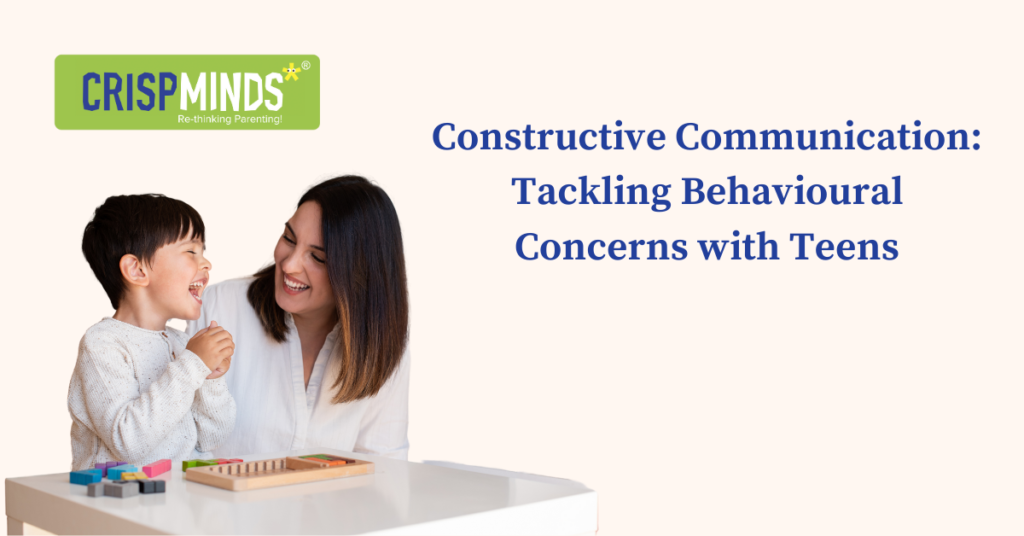Turbulent emotions, evolving identities, and a quest for independence often mark the journey through adolescence. As parents, teachers, or guardians, engaging in constructive conversations regarding teen behaviour becomes paramount. We can guide them through challenges and promote positive growth by fostering open communication and understanding.
1. Set the Stage for Dialogue: Begin conversations calmly and privately. Maybe grab a coffee or find a cozy spot to chat without distractions. The goal is to make your teen feel comfortable and open to sharing.
2. Empathetic Listening: Before diving into concerns, actively listen to the teen’s perspective. “Hey, I’ve noticed a few things lately and want to understand what’s happening. How are you feeling?”
Listen actively and resist the urge to jump in with solutions. Let them share their perspective, even if it takes a little time. Empathy is the key to understanding their emotions and motivations. Show genuine interest in their experiences, fostering trust and openness.
3. Use “I” Statements: Share your concerns without pointing fingers. Instead of saying, “You’re always on your phone,” try something like, “I’ve noticed we’ve all been spending more time on our devices lately. Let’s talk about it.”
4. Share Personal Experiences: “I remember when I was your age, I went through something similar. It was tough, but talking about it with someone helped. Have you considered talking to a friend or a counsellor?” Sharing your experiences can make you more relatable and provide a sense of understanding
5. Collaborative Problem-Solving: “Okay, we’ve identified the issue. What do you think we can do about it?” Encourage your teen to be a part of the solution. This not only empowers them but also shows that you value their input. Discuss possible strategies together, encouraging them to take an active role in shaping their teen behaviour.
6. Set Realistic Expectations: Establish achievable goals and expectations. Celebrate small victories and progress. Setting realistic expectations helps teens see behavioural changes as manageable steps rather than overwhelming challenges.
7. Positive Reinforcement: Highlight positive teen behaviour and efforts. Positive reinforcement can be a powerful motivator. Acknowledge and praise the teen when they exhibit the desired behaviours, reinforcing the importance of those actions.
8. Keep It Lighthearted: “Hey, I thought we could devise a fun way to work on this together. What do you say we turn it into a challenge?” Inject a bit of humour or turn the situation into a challenge. This approach can lighten the mood and make the conversation more enjoyable.
9. Stay Open to Their Perspective: “Help me understand it from your point of view. What do you think would work better?” Be open-minded and willing to consider their perspective. This helps build trust and encourages them to be more open with you.
10. Know When to Seek Professional Help: If concerns persist or escalate, seek professional guidance proactively. Mental health professionals and counsellors are equipped to address underlying issues and provide additional support.
Constructive conversations regarding teen behaviour concerns are vital for their emotional and personal development. By approaching these discussions with empathy, active listening, and collaborative problem-solving, we can build bridges of understanding. Remember, the goal is not just to correct behaviour but to foster a relationship based on trust, respect, and shared growth. In navigating the delicate landscape of teen behaviour, open communication becomes the compass that guides both parties toward positive and lasting solutions.

